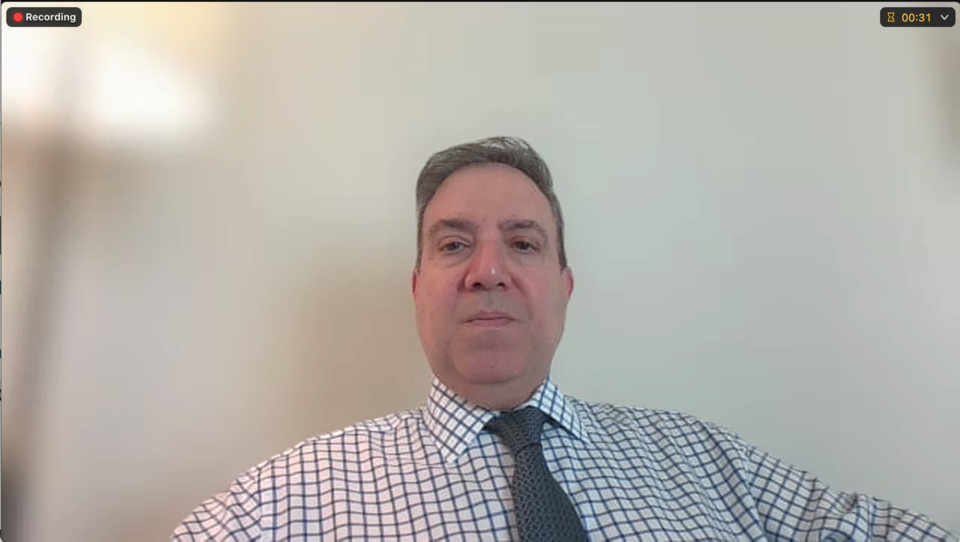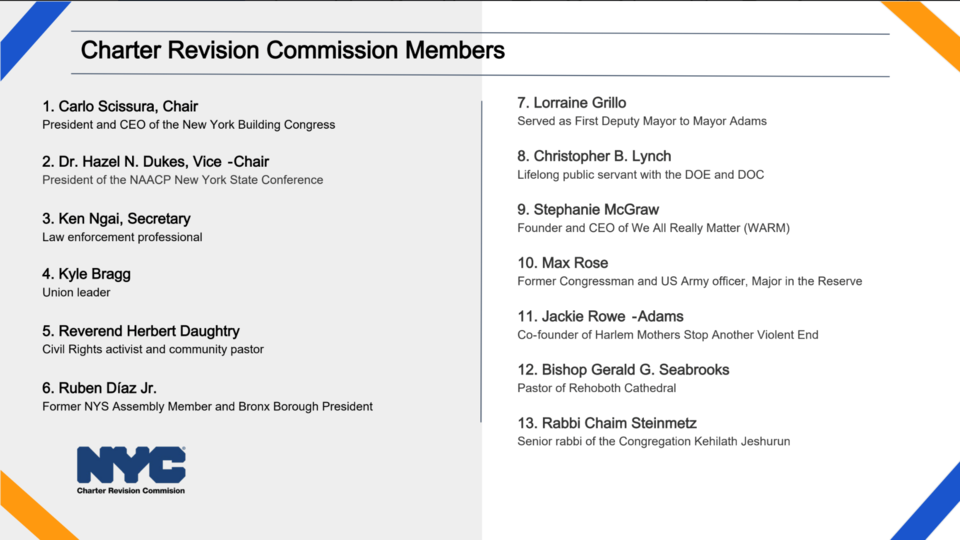The New York City Charter is essentially the constitution of New York City, outlining the organization, powers, functions and essential procedures of the city government. … And it’s about to undergo revision!
On May 21, New York City Mayor Eric Adams announced the appointment of a new Charter Revision Commission (CRC).
The Charter defines the framework for city’s overall governance, detailing the roles and responsibilities of key city officials, agencies and the legislative body.
One of the more important (and special) aspects of the Charter is that it is a living document, updated periodically, with input from residents. The Charter includes provisions for public participation in the governance process, such as through public hearings, the right to petition, and the role of Community Boards in local decision-making.
The Charter has undergone numerous revisions since its inception to address the evolving needs of the city and its residents through transparency, accountability and effective public service delivery.
So, if you love this City but you feel that it is in need of change or repair … If you’ve been a longtime resident and you’ve noticed a public service aspect that you believe needs to be addressed … Or if maybe you’re a new resident familiar with a model that has worked in other cities before … Now is your chance to have your voice heard.
The CRC– a volunteer assembly of elected officials and civil servants– will be holding a series of public hearings over the next two weeks to give residents an opportunity to weigh in on what they feel needs to be done to improve the quality of life for residents.
The CRC will take all of these suggestions and then vote to put some of the proposed provisions on the ballot during the next general election cycle on November 5.
“They can approach the task in one of two ways,” said Carlo Scissura, president and CEO of New York Building Congress and chair of the Charter Revision Commission.
Scissura addressed reporters during a CRC roundtable and briefing via Zoom on Wednesday.

“[By] proposing broad set of amendments that overhaul the whole city charter that really changes how the city runs and operates, and the last time that was done was in 1989; or, focus on a few issue areas and propose amendments related to those areas,” Scissura said.
The latter is usually where the public has the best chance to make change. For example, Scissura recounted, a group of community board members attended a public hearing and asked for a small change in how the community board should run:
“In 2019, a couple of people came and spoke about term limits for community board members,” he said. “ To be quite honest, I’d never heard that before. And at the end of the day, it became one of the questions that was put on the ballot.”
Are you concerned about public safety? Are you concerned about trash pick up? Or maybe you want to see new provisions around allowing cell phones inside schools. Now is your chance to propose a new provision that addresses this concern.
If it ends up on the ballot, voters will decide if they agree with you. And if they do, it will be added to the City’s Constitution and become law.
Even if you and others feel that there is something in the Constitution that is dated, no longer relevant for the times or needs to be altered somewhat, you can review the Charter here, and then express your idea at an upcoming hearing.
So, if you’ve been feeling that the City needs an upgrade or change, here’s your chance to make a difference. Assemble your group (or come alone) and share your concerns and suggestions.
“One of the things I’ve learned, having served on two previous commissions, is that you don’t know what’s going to come up, what’s going to trigger something in our minds,” said Scissura. “You just show up, sign in, and then I will call people to come up and speak.”
Go here for a list of the upcoming hearings in your borough, many of which will be held in the evenings. If you cannot make your meeting, you can attend a meeting in another borough, write in your testimony online, or attend the meeting virtually. All of the meetings have a virtual component that allows residents to log on live via Zoom.

“The other thing I want to stress is that none of the commissioners, including myself, work for the mayor,” Scissura said. “We’re all independent; we have jobs, our own careers. So we’re doing this as volunteers because we love New York, and we want to see something good come out of this process."
So here’s your chance, Brooklyn, to play a role in how the City is run. No need to suffer in silence about the taxes you pay and the services you don’t receive: Do something about it! Oftentimes, it’s just a matter of illuminating an issue the city’s governors have no idea exists.
And remember that complaints are far more effective if you have a potential solution.
“So, they don’t need a petition,” Scissura said. “They just need to come and share their opinions. … And their ideas!”
To assist with New Yorkers who wish to testify, email charterinfo@citycharter.nyc.gov for translation requests; and call 212-788-0014 or email mopdcommissioner@cityhall.nyc.gov for disability needs.




